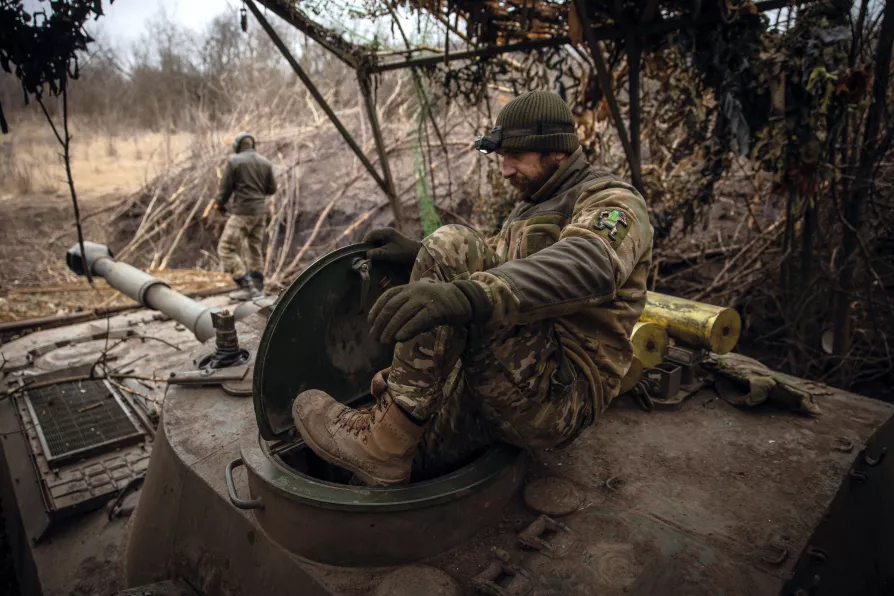Does widespread and uncontrolled use of AI change our relationship with scientific meaning? Or with each other? ask ROX MIDDLETON, LIAM SHAW and MIRIAM GAUNTLETT

 WAR MACHINE: Ukrainian soldiers prepare a self-propelled artillery vehicle Gvozdika to fire towards the Russian positions on the front line in the Donetsk region, Ukraine
WAR MACHINE: Ukrainian soldiers prepare a self-propelled artillery vehicle Gvozdika to fire towards the Russian positions on the front line in the Donetsk region, Ukraine
ANY illusions that the European Union is a force for peace in the world, or even on its own doorstep, vanished on the final day of the Munich Security Conference.
Convened in great luxury in the Bayerische Hof Hotel, dozens of new cold warriors heard Estonian premier Kaja Kallas propose that the EU collectively buy artillery munitions for Ukraine and, in lockstep, EU foreign policy chief Josep Borrell gave it the imprimatur of the EU hierarchy.
The significance of this stand lies not in the talk about ramping up production — which is presently insufficient to meet Ukraine’s demands and the delivery of which is further threatened by the collapsing US consensus about supply — but in the fuller integration of the EU into the Nato war-fighting strategy.

Washington plays innocent bystander while pouring weapons and intelligence into Ukraine, just as it enables the Gaza genocide — but every US escalation leaves Ukraine weaker than the neutrality deal rejected in 2022, argue MEDEA BENJAMIN and NICOLAS JS DAVIES

In the first half of a two-part article, PETER MERTENS looks at how Nato’s €800 billion ‘Readiness 2030’ plan serves Washington’s pivot to the Pacific, forcing Europeans to dismantle social security and slash pensions to fund it

As Britain marks 80 years since defeating fascism, it finds itself in a proxy war against Russia over Ukraine — DANIEL POWELL examines Churchill’s secret plan to attack our Soviet allies in 1945 and traces how Nato expansion, a Western-backed coup and neo-nazi activism contributed to todays' devastating conflict










